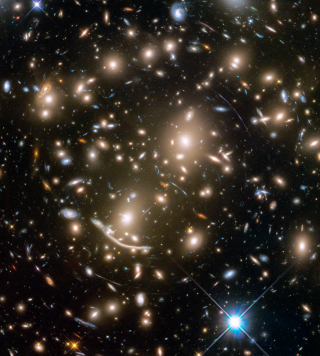Bibcode
DOI
Sánchez-Janssen, R.; Aguerri, J. Alfonso L.; Muñoz-Tuñón, C.
Referencia bibliográfica
The Astrophysical Journal, Volume 679, Issue 2, pp. L77-L80.
Fecha de publicación:
6
2008
Revista
Número de citas
33
Número de citas referidas
31
Descripción
We present the observational properties of the dwarf galaxy population
(Mr>M*r+1) corresponding to one of
the largest samples of spectroscopically confirmed nearby galaxy cluster
members reported in the literature. We have observed that red dwarf
galaxies (u-r>2.22) share the same cluster environment as the
brightest cluster members (Mr<-21), but are not in
dynamical equilibrium. We computed the dwarf-to-giant ratio (DGR) using
a spectroscopically selected sample. The DGR was found to vary with
clustercentric distance, essentially due to the blue dwarf population
(u-r<2.22). The u-r color of red dwarf galaxies was independent of
their environment and similar to the color of red isolated dwarfs. Blue
dwarf galaxies located outside r200 show similar u-r colors
to those of the field population, while strong reddening was observed
toward the cluster center. We also present evidence that the fraction of
red to blue dwarf galaxies in clusters is larger in the innermost
cluster regions. We conclude that the present red dwarf population
observed in the central regions of nearby galaxy clusters could be
related to the blue dwarf population observed in clusters at high
redshift.
Proyectos relacionados

Evolución de Galaxias en Cúmulos
Las estructuras en el Universo, a todas las escalas de masa, se han formado de una forma jerárquica y principalmente producidas por fusiones de galaxias. Sin embargo, esta formación jerárquica de las galaxias está modulada por el entorno en el cual se crean y evolucionan. Mientras que las galaxias de campo presentan una evolución pasiva, los
Jairo
Méndez Abreu